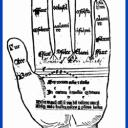Yahoo Clever wird am 4. Mai 2021 (Eastern Time, Zeitzone US-Ostküste) eingestellt. Ab dem 20. April 2021 (Eastern Time) ist die Website von Yahoo Clever nur noch im reinen Lesemodus verfügbar. Andere Yahoo Produkte oder Dienste oder Ihr Yahoo Account sind von diesen Änderungen nicht betroffen. Auf dieser Hilfeseite finden Sie weitere Informationen zur Einstellung von Yahoo Clever und dazu, wie Sie Ihre Daten herunterladen.
Why is les Miserables not classified as an opera?
11 Antworten
- Malcolm DLv 7vor 8 JahrenBeste Antwort
The same reason Cats, Jesus Christ Superstar or Evita are no classified as opera. Mostly because they are not opera, but musicals.
- RichardLv 7vor 8 Jahren
Two main reasons: the quality of the music; and the quality of the singers. But for completeness, let's eliminate some false reasons, in case they crop up.
Some people think of opera as something that only got written hundreds of years ago. Not so. Operas are still being written today, and indeed I have performed in two 21st-century operas.
At least one here thinks it may have something to do with an absence of spoken dialogue. This would be valid in German, which distinguishes between works with spoken dialogue ('Singspiel') and those without ('Oper'), but in English, both genres are called operas.
So back to the question. The 'quality of singers' bit is usually easier to spot. If the singer is holding a microphone, you are not at an opera. An opera singer has to be able to fill a building of up to 2,000 seats unaided, and against the competition of a (sometimes) 100-piece orchestra. (There will usually be microphones around an operatic stage, but those will have special purposes. They will exist either to record the performance, or to relay what is going on into the wings or dressing rooms, for the performers who are waiting to come on, and for the stage managers, so they can be sure where the performance has got to, and for other technical reasons.)
There are just a very few works which do sort of straddle the boundary between opera and musicals. The only two I can think of are West Side Story (Bernstein) and Porgy & Bess (Gershwin). Perosnally, I would rate the former as an opera and the latter as a musical, but I could certainly understand anyone disagreeing on either.
- petr bLv 7vor 8 Jahren
Well, because it isn't an opera.
It is a musical, with show music / cabaret / popular style music and songs, the singers use microphones, etc.
Ditto, as the answer above mentions, the musicals of Andrew Lloyd Weber.
Opera is a classical music genre, the arias and choruses may have sometimes a simple song format, but do not resemble pop / cabaret style so much as to make them any other but 'opera'
No classical opera -- in the opera house -- uses microphones on the singers. That makes the quality of the sound of the voice very different from the kind of singing done in musicals.
Best regards
- BirdgirlLv 7vor 8 Jahren
Because it's a musical. The composer intended to write a musical and they did.
The confusion is probably because, like MOST (not all) true operas, the musical is sung throughout with very little spoken lines (I've seen both the movie and the stage version and I can't even remember any significant dialogue at all).
On the other hand, there are genuine operas that actually do have spoken dialogue--or they did at one point. Later productions wrote music for the spoken speech to turn them into standard recitiatives. Two such as operas are Bizet's "Carmen" and Offenbach's "Les contes d'Hoffman (The Tales of Hoffman)".
http://opera.stanford.edu/Bizet/Carmen/
http://opera.stanford.edu/Offenbach/Hoffmann/
There are German "singspiels" that can be considered opera--notably Mozart's "Die Zauberflote (The Magic Flute". Other sung dramas (or comedies) that may not be strictly opera but still considered true classical music are things like operettas written by composers like Lehar, Herbert, and Gilbert & Sullivan, as well as things like Spanish zarzuelas.
But "Les Miserables" doesn't even fall under classical music. The popular ballad "On My Own" is very much in the style of a pop song that someone like Celine Dion could have recorded.
A lot of Andrew Lloyd Webbers' musicals are also sung almost completely through. And "Phantom of the Opera" is one of them--saw that too on the stage, so sorry not much talking n it--didn't see the movie.
However, listen to the overture. Sounds like rock music to me.
http://www.youtube.com/watch?v=NhttZz9lmpk
"Evita", also a musical (since it won a Tony for best "musical"), and it's still more of an opera than "Phantom" because the theme is a bit less fluffy than some of Webber's other works (and probably contains the best music he's ever written to date).
There is nothing wrong with liking, or even preferring musicals to operas. But to insist musicals ARE operas, or pop singers with "high-ish" voices are opera singers, insults both true opera and people who do musicals. The latter suggests that maybe doing musicals isn't as "good" as doing operas.
Of course at least the composers of "Les Miserables" call it what it is. And really, I don't recall ALW
claiming his work is opera either, though "Jesus Christ, Superstar" was referred to as a "rock opera".
Then you do have people who deliberately bill themselves as opera singers-- Andrea Bocelli, Katherine Jenkins, to some extent Sarah Brightman (though she actually sings more new-pop and theatre music), Il Divo, and a whole bunch of little blonde girl singers (mostly from the U.K. but there is an American one making the rounds now).
Pop music fans make fun of opera singers who try to sing pop music because sometimes it doesn't quite sound "right". Pop, country, rock, blues, have a certain sound and singing style involved. So does opera! Just because a pop singer attempts to sing an often simplistic version of something doesn't mean that it also doesn't sound stupid or terrible to the real opera lovers.
- Wie finden Sie die Antworten? Melden Sie sich an, um über die Antwort abzustimmen.
- MamiankaLv 7vor 8 Jahren
Same reason that Phantom of the Opera is not an opera, either - these are MUSICALS< written to appeal to the common people with no knowledge of fine music, and the attention span of goldfish. The Five Tenors, Five Sopranos, Il Divo, and Michale Bolton are not opera singers, either - neither is Jackie Evancho, or Charlotte, Church, or The Child of the Moment.
A true opera is based on a legitimate work of serious literature, or a libretto expressly written for operatic setting. alto Victor Hugo wrote Les Miserable,s it was a tacky potboiler THEN - and has not ripened with age. The way it has been RE-written for Les Miz has only made it worse. The music is purely music-hall, maudlin same-old. If this in ANY WAY were considered to be opera, then at least one legitimate opera company in the world would have added it to its repertoire, along with all the Puccini, Wagner, Meyerbeer, Mozart, and countless other composers - some of whom also wrote things that might be heart-tuggers by modern standards, but at least had the skill of a FINE composer writing them.
Once you have heard a significant number of REAL operas - you should be able to tell the difference. If you eat junk food your whole life, you do not recognize fine cuisine when you taste it, either. PLEASE see and hear some real opera - it might take maturity and some guidance - but you will then *get it*.
Added - OK, we clearly have someone reading these responses who thinks that Les Miz is the BEST THING EVERY WRITTEN - and therefore, has given almost everyone a TD (and they will be back to finish the job, I am sure.) Then we have our perpetual potty-mouth insult-tosser. Yup - he's a tosser, all right.
Added 2 - Yes, I gave everyone else a TU for their fine answers - except for the Norse Blob. I taught MS and HS for over 30 years - I am guessing that this is a 13-year-old with *issues*.
- DouglasLv 7vor 8 Jahren
Mr. Schoenberg, the composer, was smart enough to call it a Musical, so he could earn 100 times MORE money.
Just like Bernstein's "West Side Story"
- vor 8 Jahren
Because it's not. It's MUSICALS. Heck, even the numbers aren't sung in operatic singing style. How does one even think it's opera??? O_o
- wvculturalloverLv 7vor 8 Jahren
If the definition of an opera is "a work totally sung", then there are several operas in the classic repertoire that do not qualify because they have speaking parts such as Mozart's "The Magic Flute", Beethoven's "Fidelio" and the original version of "Carmen" by Bizet. Neither of these is based on 'great literature', yet they command the world's opera stages. "The Magic Flute" was light entertainment in its day and certainly not considered as lofty a work as it is today. All opera was written as entertainment whether the audience members were royalty or middle and upper class citizens.
Unlike 17th and 18th century composers who based their operas on stories of mythology and ancient history, Verdi and other 19th century composers based their works on popular novels of their day by the likes of Sir Walter Scott, Lord Byron and Victor Hugo. Their operas featured arias and ensembles for sopranos, mezzo-sopranos, tenors and basses along with music for chorus. Their works were written in the language of their country so their audience could understand what was being sung. Even operas that were written for an Italian audience was translated into French for performances at the Paris Opera and in German when presented at the Vienna State Opera.
Being a lover of opera, I can fully appreciate Schonberg's "Les Miserables" as an opera. It is based on a famous 19th century novel by Victor Hugo that started its life with a French libretto before being translated into English. Due to its world-wide popularity, it has been translated into several other languages so the audience of a given country can understand what is being sung. Like a score by Puccini, there are melodies that reprise throughout the work's two acts that refer to a person or situation. Every vocal type (soprano, tenor, etc.) has at least one aria (song) and there are duets and ensembles such as the finale to Act I in which the various characters come on stage singing of the situation in which they find themselves. The work is scored for a full symphony orchestra and has been recorded in that form. Unfortunately, when the show tours, the orchestra in the pit is greatly reduced due to cost issues. The story is completely sung and the voices needed for the musical/opera need to be of the highest quality. ("Bring him Home" is not a song that is easy to sing because of its register)As is the custom with musicals today, the singers are miked and many would not be able to fill the auditorium of a large opera house. Should this work makes its way into the repertoire of opera houses in the future, more operatically trained voices will be needed such as the operatic casts that have been assembled for Stephen Sondheim's "Sweeney Todd" , another musical that is making its way into opera houses along with his " A Little Night Music" and Leonard Bernstein's "Candide". "Candide" has spoken dialog just as "The Magic Flute" does, but like the latter opera, it demands singers with operatic training to navigate its vocally challenging score.
"Phantom of the Opera" does not qualify as an opera because it has much spoken dialog. It will be interesting to see if this work enters the repertoire of opera houses or is frequently revived or if it fades away into music history like "The Black Crook".
I have been so pleased to have seen revivals of Jerome Kern's "Showboat" and Gershwin's "Porgy and Bess", both of which are now on opera house stages. Whether operas or musicals, they are filled with wonderful, memorable music that deserves to be heard on a regular basis along side "La Boheme" and "La Traviata". Future generations will determine whether "Les MIserables", "Candide", "Miss Saigon", "West Side Story", "Porgy and Bess", "Sweeney Todd", "Passion", "A Little Night Music" and "The Most Happy Fella" survive on the operatic stage.
- lainiebskyLv 7vor 8 Jahren
One somewhat more technical reason: Classically, operas are entirely sung. There is no dialogue. If there is dialogue, you have either an operetta or a musical.
- Anonymvor 7 Jahren
Opera is a wonderful browser, here you can download it for free http://bit.ly/1pkj9HJ
it's very fast and works like a charm!









